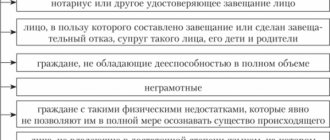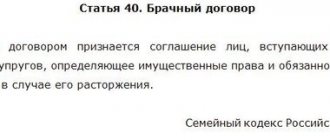The first generation of Russian billionaires, who made their fortune in the 1990s, is approaching the age at which it is time to think about transferring assets to their heirs. The average age of participants in the Forbes ranking of “200 richest businessmen in Russia” is now about 53 years old, while among them there are 45 people who are already over 60, and five billionaires who have passed the 70-year mark.
Wealthy Russians store a significant portion of their assets abroad. According to the US National Bureau of Economic Research (NBER), Russian entrepreneurs hold funds equivalent to about half of Russia's annual GDP ($590 billion) in bank and brokerage accounts in tax havens.
According to estimates by Dmitry Kip, director of the investment banking department of QBF, a moderately conservative investor with a large check has the following proportions in a foreign portfolio: 50% of capital - real estate, 20% - deposits, 15% - securities in a brokerage account or in trust management, 5% - business (usually shares in a company), 5% - the rest (funds and trusts, private loans, yachts, airplanes, art, cars, jewelry and metals in safe deposit boxes, etc.).
Advertising on Forbes
“For a conservative investor, the share of real estate can reach 80-85%. These are mainly European objects (75%), North America (20%), Asia (5%),” he adds.
The procedure for inheriting foreign assets is associated with a lot of nuances and legal subtleties. Different countries have different terms for entering into inheritance, and unclaimed assets most often go to the state treasury. At the same time, the heirs will have to collect funds that are not “fixed” by a notary, literally bit by bit, encountering obstacles associated with bank secrecy and reluctance to share information about client accounts, as well as the lack of legal assistance agreements between specific countries.
As lawyers specializing in inheritance law told Forbes, there are three ways to simplify the future entry into the right to inherit foreign assets: include funds in a Russian will, draw up a will for each foreign asset in the country where it is located, and also combine property and assets of different jurisdictions into a trust or family foundation.
According to what legal principles does inheritance occur abroad?
In the case of receiving an inheritance abroad, various legal norms may apply to the inheritance matter:
- The personal law of the heir or the law of the country in which he permanently lives . For an heir from Russia, the process is regulated on the basis of the Civil Code.
- The law of the location of the testator's property . This situation may arise if the testator was not only abroad, but also owned property outside his country of residence. For example, real estate.
- The law of the place of death of the deceased testator . Most often it applies to cases where the testator’s property is located in the territory of the country where he lived and died.
In situations where an inheritance case is opened for objects of movable property, the person responsible for carrying out the procedure for transferring inheritance follows personal law. In most European countries, property is transferred to heirs according to similar patterns of action. However, local nuances should be taken into account so as not to encounter obstacles when opening a inheritance case abroad.
What is property
The estate in this case can represent any property of the heir, for example, real estate, securities, personal belongings, money, and so on.
Particular attention is paid to the inheritance of real estate and securities, since different states may impose different requirements on the owners of such objects.
How to find out about inheritance abroad?
The easiest way to find out whether a person has an inheritance abroad is to maintain stable contact with foreign relatives. If the relationship is good, you can hope that a will will be drawn up that includes the name of the heir. But this does not always happen, and therefore there is a greater chance of getting a share when dividing the inheritance according to the law.
If contact is maintained with relatives, they can independently notify the heir of the death of the testator. If information about a foreign heir is indicated in the will, the duties of the notary opening the inheritance case will include searching for all the heirs specified in the will . These actions of a lawyer are provided for in many countries around the world.
Required Criteria
In order to enter into an inheritance abroad, the following is required:
- fact of consanguinity;
- the fact of a will.
Categories of kinship should also be taken into account. In general, they are almost always similar to those installed in Russia. However, there may be some peculiarities.
It is also worth paying attention to the fact that property taxes must be paid. In Russia, when receiving an inheritance, it has not been paid since 2006, but in most countries it is established by law.
Inheritance abroad, how to get it?
If the heir has received a letter about an inheritance from abroad, he will need to draw up an application at the notary office at the testator’s last place of residence.
Typically, heirs must independently appear before a notary to declare their rights to the inherited property. At the same time, most states provide the opportunity to defend the interests of a foreign heir to another person if they have a notarized power of attorney for a lawyer. If the heir himself cannot visit the notary's office, he will need to provide documentary evidence for this. To enter into the right of inheritance abroad, you need to know what documents may be needed:
- Death certificate of the testator.
- The heir's identification document is a passport.
- Certificate of right to inheritance.
- Documents confirming the fact of relationship of the heir with the deceased.
This is the most necessary list of papers that will need to be provided. But depending on the situation, other documents may be required. An example would be inheriting a bank deposit. Before obtaining rights to it, you must provide:
- documents confirming the ownership of the deposit;
- notarial or administrative acts, etc.
At the same time, it is advisable to find out exactly how to register an inheritance abroad in accordance with the legal norms of the country where the inheritance case is opened. Also, if a foreign account is transferred as an inheritance, the heir is not required to notify the tax authorities about this, since this obligation is not specified in regulatory documents.
Will you need to pay tax?
Currently, different countries pay different taxes:
- In the UK, tax is paid on property whose value is above 325 thousand. The tax will be 40 percent.
- France imposes different taxes depending on the degree of relationship. For close relatives they are equal to 40 percent, and for others 60.
- In many so-called offshore zones, there is no tax.
- In Spain, a scale is established depending on the value of the property, from 9 to 20 percent.
- In Poland the scale is also progressive, from 3 to 20 percent, depending on the amount and degree of relationship.
Taxes in many countries are quite high, so it is recommended to study the inheritance laws of the country before accepting an inheritance, or contact a specialist.
How to receive an inheritance abroad and in what time frame
In almost all countries, regardless of whether there is an inheritance abroad or a person enters into inheritance rights in his home country, the distribution of inherited property occurs either according to the will of the testator or by law, if there is no testamentary document left .
If the testator left a will, this greatly simplifies the work, since the property of the deceased is distributed in accordance with the last will of the testator. The document also usually contains information about the heirs under the will. In the event that there are no specific orders of the deceased regarding the distribution of property between the heirs, it is divided equally among all the heirs indicated in the document.
When the testator does not leave a will, the entire inheritance is divided according to the law, and in this case the degree of relationship of the heirs with the deceased is decisive. Depending on the country, the order of inheritance for different categories of relatives may vary. But in most countries the first stage includes:
- children;
- parents;
- brothers and sisters;
- Grandmothers and grandfathers.
Many people have a question: if the inheritance is abroad, how to receive it on time and not miss the deadline for entering into inheritance rights? In Russia, this period is six months from the moment of death of the testator in case of inheritance by law or from the moment of proclamation of the will, if there is one. In other countries, the period for accepting an inheritance varies from 3 to 6 months, and in some countries even more . Residents of Latvia can contact a notary within a year, and in Bulgaria, an inheritance case can be opened after six months established by law.
Aspects of inheritance
In a general sense, the principles of inheritance in foreign countries are similar to Russian ones:
- The presence of several modes: will, law.
- The prerogative of a person’s testamentary will over the distribution of property according to the law.
- The testator has the right, of his own free will, to determine people and give them property after death.
- According to the law, relatives inherit.
- 1st line of inheritance is similar to the provisions of Russian law (parents, sisters, brothers, children).
- Allotted period for acceptance of inheritance: period from 3 months to six months. In some countries – up to one year.
A person can find out that an inheritance has appeared abroad in the following ways:
- Inheritance by law: call the relatives of the deceased yourself, receive notification from relatives from abroad. Or an official notification from a notary that a specific person has died and left property.
- Will: the notary searches for heirs, including those who are abroad. If the heir has learned from third parties that the testator has died, he has the right to independently notify the notary about this. And, accordingly, declare that he is interested in the inheritance.
In order to register a foreign inheritance, certain papers are required:
- A document that proves that the testator has passed away.
- Heir's passport.
- A document proving the existence of a relationship.
- A certificate confirming the right to the obligatory share. But this document is necessary if the law of the country provides for the right of obligatory heirs to have a share in the inheritance, regardless of the will and the presence of a blood connection with the testator.
- Documents that show that the deceased was the owner of all property.
- Power of attorney. This document is necessary if for some reason a person cannot come to court on his own. Typically, the reasons for representation are residence (far from the place of acceptance of the inheritance, illness of the heir, employment, etc.)
Refusal of inheritance
If inheriting the property of a relative abroad for some reason is not included in the plans of the heir, he may refuse this opportunity, as well as according to the laws of his country. When drawing up a waiver of inheritance, a number of features should be taken into account:
- The refusal must be carried out before the inheritance is entered into . If the heir has valid reasons, the period of entry into inheritance rights can be extended.
- The refusal should be addressed to the notary opening the inheritance . If you are unable to complete the paperwork yourself, you can use the services of an official representative. But to do this, you must draw up a power of attorney, which will stipulate the ability of the representative to formalize the refusal on behalf of the heir.
- Cancellation of a refusal is not possible . You can't take it back either. The refusal occurs in favor of the heirs by will or heirs by law, with the exception of those who were indicated in the will as deprived of the right to inherit.
Opening place
The place of opening of the inheritance in this case is the place in which the real estate is located, or the place in which the deceased lived permanently or primarily.
If the heir belonged to nomadic peoples and did not have a permanent place of residence in the usual sense, then the inheritance opens in the locality where the nomadic route lay.
If a minor or incompetent person inherits, the place of opening of the inheritance will be considered the place of residence of his legal representative.
Inheritance tax
As for Russia, heirs are not required to pay a special tax on property and funds received as a result of inheritance. But if the inheritance occurs in another country, you may be required to pay inheritance tax according to the laws of the place where the inheritance was opened. To relieve the heirs from paying tax, the testator can transfer property to them using a gift agreement . But here it is also necessary to carefully study the legislation, since in some countries the gift tax exceeds the inheritance tax.
Taxation
Tax withholding depends on the state to which the property belongs. If we analyze the legislation of various countries regulating inheritance by law and will, taxes for a foreign citizen may be different.
For example:
- Spanish State – 9 % of the total value of the inherited property;
- France – 40 % of the value of the inheritance;
- Bulgaria: for blood relatives - tax exemption, for other persons - tax is paid, but on an amount exceeding 250,000 euros;
- Poland: persons who are not blood relatives of the testator are taxed at 12 to 20 %;
- Great Britain; tax rate is 40 % of the value of inherited property.
Inheritance tax has been abolished in the following countries:
- India;
- Canada;
- Austria;
- Sweden.
Scammers
In matters of inheritance, extreme caution should be exercised, especially if the news was received by unknown persons, and not through official means of notification. For example, many scammers can simply come to your home and introduce themselves as lawyers dealing with the issue of obtaining a foreign inheritance. They also offer their services in registering this inheritance and require a monetary reward in advance for the work.
The main difference between lawyers and scammers is the lack of time, especially for a personal visit to each presumptive heir. Therefore, the heirs are notified either by telephone or by mail with notification in the established form.
Since registering an inheritance abroad can bring with it some difficulties, it is better to consult with an experienced lawyer on procedural issues.
What laws are responsible
First of all, it is necessary to pay attention to the legislation of the state in whose territory the inheritance takes place. It may contain many nuances and features.
It is also necessary to pay attention to the text of the Civil Code of the Russian Federation, which regulates inheritance issues in Articles 1152-1158.
It is advisable to find a lawyer who can deal with foreign legislation.
Methods of receipt and deadline
All countries provide two ways to receive inheritance: according to a will or according to the norms enshrined in legislation. When the owner of the property has made a will, inheritance occurs in an obvious way - all property is divided between the persons indicated in the paper.
The shares according to which the division occurs are determined on the basis of the will. If a person has not indicated the proportions in which his property should be divided, equal distribution between legal successors is applied.
Expert commentary
Leonov Victor
Lawyer
In the case of inheritance according to legal norms, the main condition is the correct distribution of successors in relation to the degrees of relationship to the testator. According to the laws of different countries, these categories are assessed differently.
It should be noted that in most countries, the heirs included in the first place include: grandmothers, sisters, grandfathers, children, brothers, parents. Based on the legislative principles in force in Russia, legal successors enter into legal inheritance six months after the death of the owner of the property. This period of time is reserved for searching for other heirs.
European countries set this period from three to six months. Some states increase the specified period of time to a year, for example, Latvia.
Documents required for the heir to take over
After considering the question of how to find out about an inheritance due, you should find out what documents are required to receive it.
In order for the registration of inheritance rights to proceed without delay, the applicant for foreign property will need to provide the following package of documents:
- A document confirming the death of the testator.
- Passport of the applicant for inherited property.
- Documents confirming the relationship of the deceased with the applicant for the inheritance.
- Documents indicating the right to receive a mandatory share of the inheritance (if this category of heirs operates in the state where the inheritance was opened).
- A document (or documents) confirming that the deceased is the legal owner of the estate.
- Power of attorney to represent the interests of a foreign citizen - an applicant for the inheritance of the deceased by a representative (if the applicant cannot personally attend the process of dividing the property mass).







